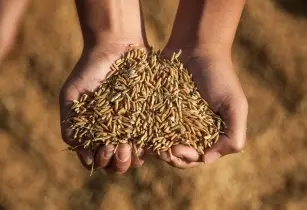The looming expiration of the Black Sea Grain Deal risks further food market instability at a time of record food insecurity, warns the International Rescue Committee (IRC)
With 349 million people across 79 countries estimated to experience acute food insecurity this year, the Black Sea grain deal must be extended. The Black Sea Grain Initiative has been a critical step to restarting shipments of Ukrainian and Russian grain, which represents as much as 90% of imports for countries in East Africa going through a food security crisis. As of May 2023, more than 29 million tonnes of grain and other foodstuffs have been exported from Ukraine. According to the FAO, the severe export shortfall from Ukraine and the Russian Federation, as well as the lack of affordable fertilisers will cause a spike in the number of undernourished people, close to 19 million in 2023.
The IRC calls for an extension of the Black Sea Grain Initiative and expanding its coverage to more Ukrainian ports. This will help reduce pressure on food prices and limit speculation on grain futures. It is important to ensure that food exported through this mechanism reaches the countries most in need – in East Africa and elsewhere.
The extension of the Black Sea Grain Deal is critical for the Ukrainian farmers, too, as they are still facing difficulties selling their grain due to disruptions in logistics chains, and blockage of seaports. Some Ukrainians who the IRC spoke to admit that while they are striving to cultivate their lands despite active hostilities, storing food in some regions has become extremely difficult due the disruptive impact of the war on the power supply. Limited access, logistical challenges and increased transportation costs are also resulting in crops being thrown away.
“Shortages of food in the system and lack of affordable fertiliser continues to push up prices, making it difficult for families in countries like Somalia to predict if they will be able to afford a meal the next day. Agricultural production is in decline - farmers in Ukraine are struggling to keep their harvests alive amidst active shelling, while climate change is killing crops in other parts of the world that need them most,” said Shashwat Saraf, East Africa emergency director at the IRC.
He further added that the expiration of the Black Sea Grain Initiative was likely to trigger increased levels of hunger and malnutrition, spelling further disaster for East Africa. “Constructive extension of the grain deal means bringing in more food into the global system and as a result, helping to lower soaring costs and to maintain market stability. Supply chains must be opened and uninterrupted to ensure grain can get to the countries that need it most.”





